Biobased resources
A major goal of the bioeconomy is to use larger quantities of biobased raw materials to produce energy, transport fuels and feedstock for industrial processes. This requires detailed analyses, simulations, concepts and processes. Major focus needs to be placed on issues relating to crop production, biomass potentials, land surface requirements, conversion technologies, biobased value creation networks and food security. Agriculture, forestry, waste management and the industry in general will need to work in concert as far as the raw materials all of them use or deal with are concerned.
-
Wasser 3.0: #detect|remove|reuse - 31/10/2023
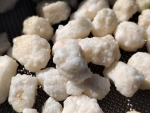
We all pollute our water with things we use in our everyday lives. In the process, microplastics and micropollutants accumulate in sometimes significant quantities and are difficult to remove. This has increasingly devastating consequences for our health and the environment. Wasser 3.0, a non-profit start-up from Karlsruhe, has declared war on this problem by developing a customisable process to detect, remove and even recycle these pollutants.
-
Microorganisms degrade biobased turf infill - 17/10/2023
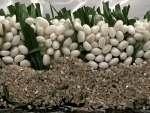
There are thousands of artificial turf pitches in Germany. They are extremely practical, but often not at all environmentally friendly. When it rains or the pitch is used, plastic particles from the rubber granules can be released into the envronment, where they remain. Researchers at the University of Stuttgart along with the company TECNARO are now developing an artificial turf with an infill that biodegrades as soon as it leaves the pitch.
-
Preventing waste from instant meals - 05/10/2023
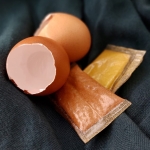
Many instant meals such as ramen soups have both a protective outer packaging and individual ingredients in small plastic sachets. To prevent this environmentally harmful waste, five students at the University of Hohenheim have developed a sustainable film based on eggshells and plant proteins that dissolves in hot water and is edible.
-
Food of the future: new production methods - 06/09/2023
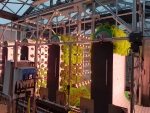
A rapidly growing world population and simultaneously rapidly shrinking arable land – these are just some of the major challenges facing the food industry. But how can solutions be found? Answers are being sought by the bioeconomy innovation space NewFoodSystems. Funded by the German Federal Ministry of Education and Research (BMBF), it is a network where science and industry can come together to develop sustainable food systems of the future.
-
Innovative materials - 14/06/2023

Conserving wood by producing furniture and other objects from wood-based materials with the help of microorganisms? That is exactly what a team of researchers from the University of Freiburg and the Leibniz Institute for New Materials (INM) in Saarbrücken is working on in the DELIVER project. The aim is to create a database of materials with a broad range of controllable properties for various applications that can be produced from wood waste.
-
3D-Thermocell project - 17/05/2023

Replacing plastic – for example in packaging – is not that easy but nevertheless urgently needed. In the 3D-Thermocell project, researchers at DHBW Karlsruhe are currently developing new plastic substitute products made of thermoformable paper as a renewable resource, which should be cheap and light and easy to dispose of along with waste paper. The characterisation and application of demonstration models will start soon.
-
Diatoms as a biorefinery - 05/05/2023
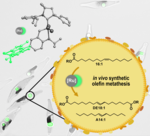
Renewable raw materials that can be used as alternatives to fossil resources already exist. However, to turn them into everyday products, plant oils and other renewable raw materials not only have to be extracted, but often have to undergo complex chemical processing. Researchers at the University of Konstanz have now converted microalgae cells into tiny refineries to produce and upgrade raw materials, creating a supply of sustainable chemicals.
-
City of the future - 04/04/2023
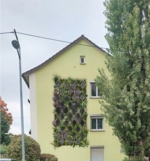
Resource-efficient water management, photovoltaic modules and innovative facade greening - FamoS is all that. By combining proven elements, the ‘facade module with synergy’ makes a valuable contribution to combatting climate change and boosting climate resilience in cities.
Website address: https://www.biooekonomie-bw.de/en/articles/biobased-resources







